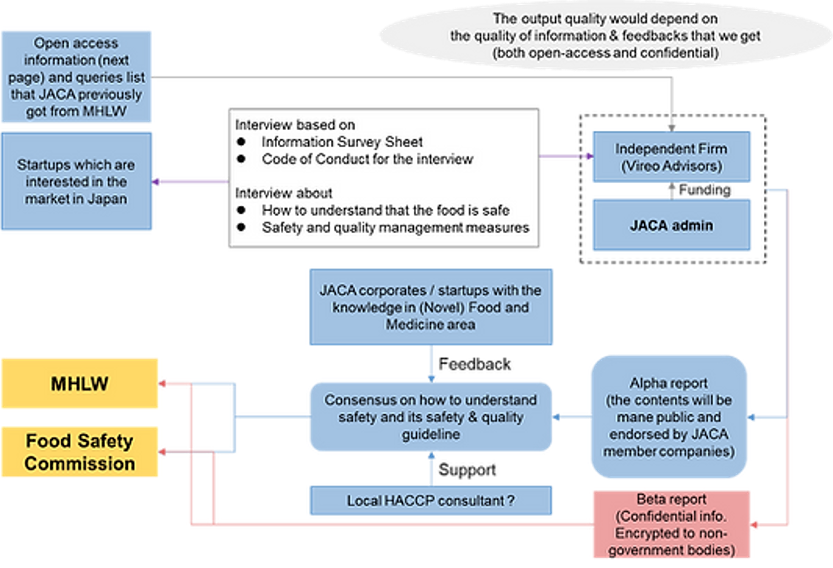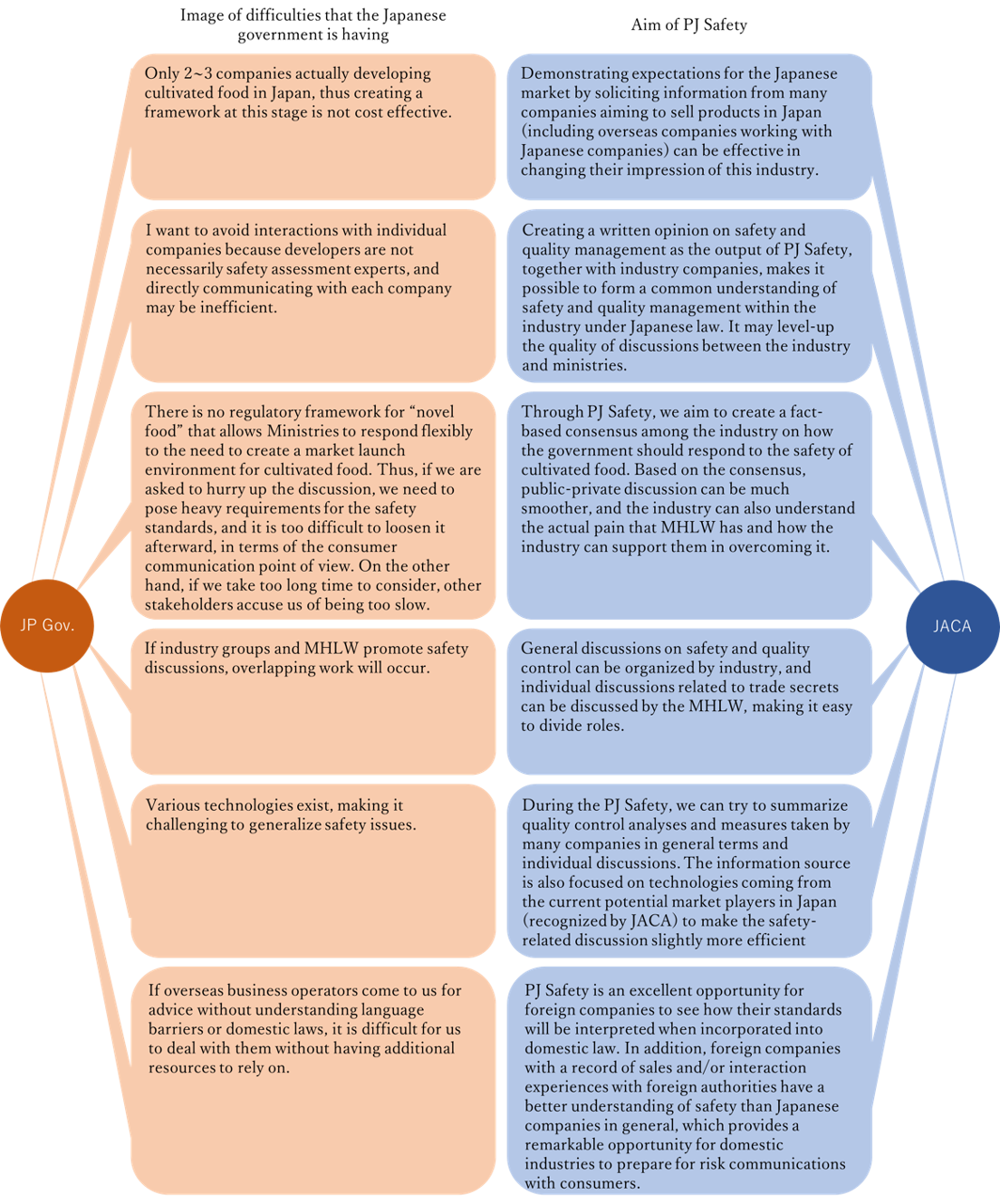■Industry
Recent updates about the Cellular Agriculture field in Japan ― Industry
Q:
How should I accelerate the discussion around creating an environment for selling cultivated food in Japan?

A:
I assume industry should support MHLW by information sharing and encourage MHLW to establish a pre-consultation and safety endorsement system.
To share safety-related information to MHLW, JACA is conducting a project called PJ Safety.
“PJ Safety” is to collect information from (1) publicly available data and (2) each developer company of the food about “how they understand the safety of cultivated food” and its quality management measures. JACA will then translate such safety-related insights into Japanese and review them under local regulations, together with large Japan-based corporations with accumulated experience in the food and medicine area. JACA created a “Code of Conduct” for the interviewees to feel safer and help them extract the needed safety-related thoughts for risk communication from their internal accumulated knowledge. JACA also tries to compile a list of data related to the safety of cultivated foods held by each company – organize what data each company has on each safety topic. It doesn’t mean that companies need to share JACA with their dossier. Instead, we would like to share with MHLW a list of “which company conducted what kind of analysis” so that MHLW can ask the specific company to share the specific data with the government to understand the risk of specific hazards of cultivated food, eventually increasing company-government direct information sharing opportunities.

I illustrated various assumed reasons why MHLW cannot accelerate the discussion about the safety of cultivated food and how PJ Safety is essential to cover all of the concerns.

“A pre-consultation and safety endorsement system” that I mentioned above is similar to Japan’s gene-edited food framework.
Under the gene-edited food regulatory framework, a company “can” submit safety-related data to MHLW before the official market launch (not mandatory) and get it checked. If there are no concerns, the government will announce that the food was checked. If there are any concerns, issues will be shared with the Food Safety Commission under the Cabinet Office for risk assessment.


